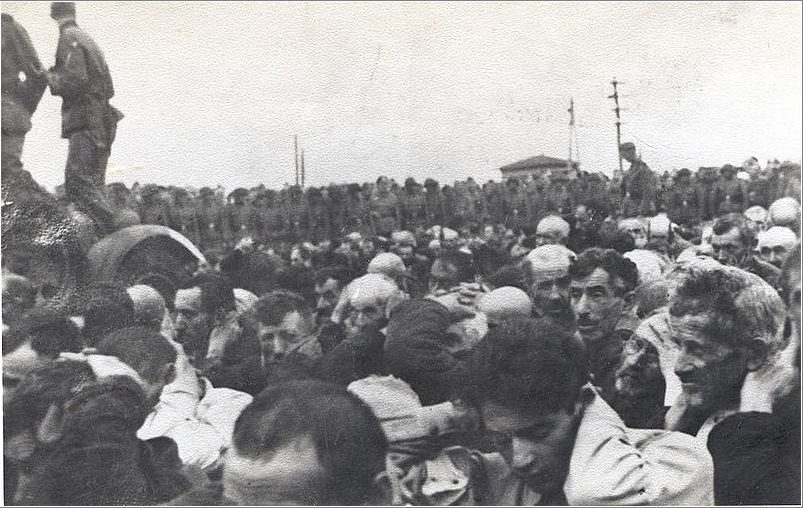The project Jewish Heritage Trail in Białystok was created as part of an independent social initiative by a group of students and doctoral candidates, volunteers at The University of Białystok Foundation. Among the participants also were indicated professor Jerzy Nikitorowicz, the Rector of the University, and Professor Andrzej Sadowski, the Dean of The Faculty of History and Sociology as its patrons of honor.
Jewish Heritage Trail in Białystok represents a marked foot trail made in June 2008 in Białystok, Poland.
One of the primary goals of the project was to present a history of the Jews life in the city, their coherence with Polish Jews, and describe the historical sites mentioning the history of Białystok Jews. Also, the project was aimed to provide social capital by engaging cooperation between local institutions and social groups.
The project included: providing the trail, publicizing an informative booklet and map both printed and e-version, constructing an official website of the project, marking the trail sites and opening the trail to the public with a walk around the city, publicizing teacher’s materials dedicated to the history of Białystok Jews, and the times of Białystok Ghetto.
History of Białystok Ghetto
The German-Soviet Pact of 1939 assigned a city of Białystok, in the Northeast of Poland, to the Soviet power. Soviet forces entered Białystok in September 1939, and the city was under their power until the German army occupied it in June 1941, following the German invasion of the Soviet Union.
In August 1941, according to the order of the Germans, the Białystok ghetto had been established. It was divided into two sections, with the border swept along the Biala River. Most Jews in the Białystok ghetto worked in forced-labor projects, primarily in large textile factories located within the ghetto boundaries. The Germans also, sometimes, used the Jews in force-labor projects outside the ghetto.
In February 1943, about 10,000 Białystok Jews were sent to the Treblinka killing center. But even during the expulsion, hundreds of Jews, mainly those deemed too weak or sick to travel, were killed.
The Soviet army liberated Białystok only in August 1944.

museumoffamilyhistory.com
Trial sites of the Jewish Heritage Trail:
Cytron Palace (today’s Historical Museum) – Tobacco Factory of Faiwel Janowski – Shmuel Synagogue – Jewish Female Gymnasium of Zinaida Chwoles – Białystok Palace Theatre – Jewish Hospital (now Maternity Hospital) – Białystok Trylling
Palace – Zygmunt August Gymnasium (now Sigismund Augustus High School) – Sholem Aleichem Library – TOZ Sanatorium – The Hebrew Gymnasium (now Municipal Hospital) – Mansion (ul. Sienkiewicza 26A) – Apollo Cinema – Mansion (ul. Sienkiewicza 26A; now State Theatre Academy) – Gymnasium of Jozef Zeligman , Jozef Lebenhaft and Jakub Dereczynski – Gilarino Miniature Theatre – Mansions of Isaac Zabludowski – Linas Chailim Charity Association – House of the Zamenhof Family – Monument to Ludwik Zamenhof – Yitzhak Malmed Plaque – Druskin Gymnasium – The Heroes of the Ghetto Uprising Monument – Cytron Synagogue (now Art Gallery of the Slendzinskis) – Warynskiego Street – The Modern Cinema – House of the Jakub Szapiro Family – Nowik Palace in Białystok – Tarbut (today Maria Grzegorzewska Craft School) – Jewish Craft School (now The Faculty of Physics at The University of Białystok) – The Barbican Mission (today’s Syrena cinema) – Białystok-Chanajki Quarter – Piaski Quarter – Rabbinical Cemetery (today’s Central Park in Białystok) – Piaskower Synagogue – The Monument of the Great Synagogue – The City Hall – The Jewish Cemetery (Wschodnia street) – and the Cholera Cemetery in Białystok.

